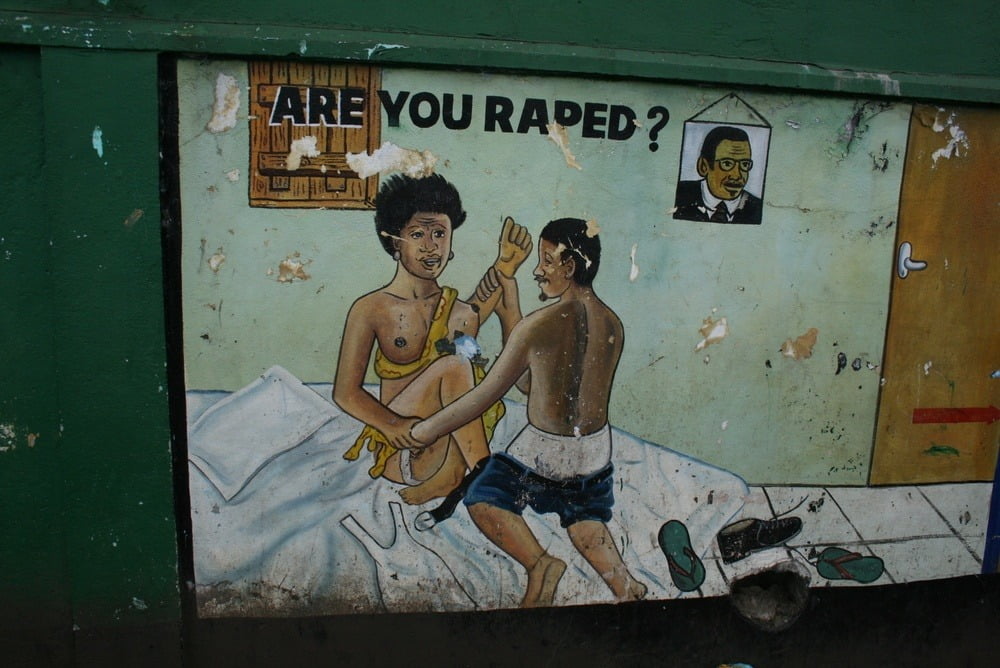Medical fees, a major challenge to victims of rape and defilement

Medical fees, a major challenge to victims of rape and defilement. Some few weeks ago, I met a young woman who narrated how her 11-year-old girl was defiled by a 45-year-old man in their neighbourhood; she had to nurse the wound and pain of her daughter a class five pupil all alone, whiles the perpetrator walked free because she could not afford to pay GHC 300 medical bill to support the prosecution’s evidence.
READ: Primary 4 pupil pregnant after being defiled, accused jailed cool 20 years
The woman said she also came into contact with three other women who had gone through similar fates where their children had been defiled, yet could not find justice, because they had no money to pay medical fees or the needed logistics to go through the long and frustrating process of finding justice for their poor children who had been traumatised and sometimes damaged beyond repairs. On Mother’s Day, there was a report that a suspect who defiled a seven-year-old girl at Agona Nyakrom had been freed because the victim’s poor parents could not raise GHC200 to pay for the medical fees at the Agona Swedru Government Hospital.
The plight of a mother whose daughter as young as five years old has been defiled has nothing to be compared to especially when she is a single parent and is challenged financially.
This heartbreaking story where young children and girls who have been sexually abused are refused justice is occurring quite frequently and does not speak well of the nation which is committed to the rights and protection of children especially the girl child.
I have attended several conferences and workshops organized by the Ministry of Gender Children and Social Protection where this issue has featured prominently and officers from the Domestic Violence and Victims Support Unit (DOVVSU) have also stated clearly that it is one of the key barriers to prosecuting such cases.
Read: 5 teenage girls impregnated every 4 hours in Ghana
Police Superintendent Florence Anaman, Eastern Regional DOVSSU Commander, at one of the Regional Multisectoral Child Protection Committee meetings, said there is the need for medical fees to be scrapped in times of defilement and rape to ensure justice delivery.
She said quite often parents and guardians whose daughters have been defiled or raped go and don’t come back again due to the lack of finances to pay for the medical fees adding that “this medical fees is really a burden to all of us both the police and the parents whose children have been abused and we must find an urgent solution”.
In some instances, where the mothers are too poor to even foot the transportation costs after reporting the incident, the police officers handling some of such cases have had to contribute to pay for the medical fees to ensure that the perpetrators are brought to book.
Reports from the DOVVSU suggests that many of these defilement and rape cases occur at the rural areas, to vulnerable children of less privileged parents who find it difficult to bear the costs of initiating the prosecution for justice to prevail.
And in many cases the few who try to pursue the matter are challenged by members of the public to abandon the process – the ‘fa ma nyame’ syndrome. With this being the situation, many more children are becoming victims to defilement and rape. And perpetrators of such acts don’t deserve to be walking around to harm other children.
The Ministry of Gender, Children and Social Protection must come clear on this issue, it should not be too much for the Ministry in collaboration with other state agencies such as the DOVVSU and the Ghana Health Service, to scrap the medical fees for abused children.
This would greatly alleviate the plight of many defiled and raped victims in furtherance of the child welfare and protection systems.
Crime against children especially the girl child need to become a heavy burden on the perpetrators and nothing should stand in the way of punishing men who commit such atrocious acts. They are a threat to the harmony of the entire society.
Source: Bertha Badu-Agyei

 Good Grow: The Marijuana Farm Founded by Akufo-Addo’s Daughters
Good Grow: The Marijuana Farm Founded by Akufo-Addo’s Daughters  National Food Suppliers for Free SHS set to picket at Education Ministry
National Food Suppliers for Free SHS set to picket at Education Ministry  Information Ministry justifies ¢151k paid to staff as Covid-19 risk allowance
Information Ministry justifies ¢151k paid to staff as Covid-19 risk allowance  I’ll help farmers with tractors to increase productivity – Bawumia promises
I’ll help farmers with tractors to increase productivity – Bawumia promises  CETAG meets national teaching council to conclude on strike
CETAG meets national teaching council to conclude on strike  Adom Kyei Duah cannot be the Jesus that Christians seek – Christian Council of Ghana
Adom Kyei Duah cannot be the Jesus that Christians seek – Christian Council of Ghana  Bawumia’s smartphone pledge misguided and visionless – Adongo
Bawumia’s smartphone pledge misguided and visionless – Adongo